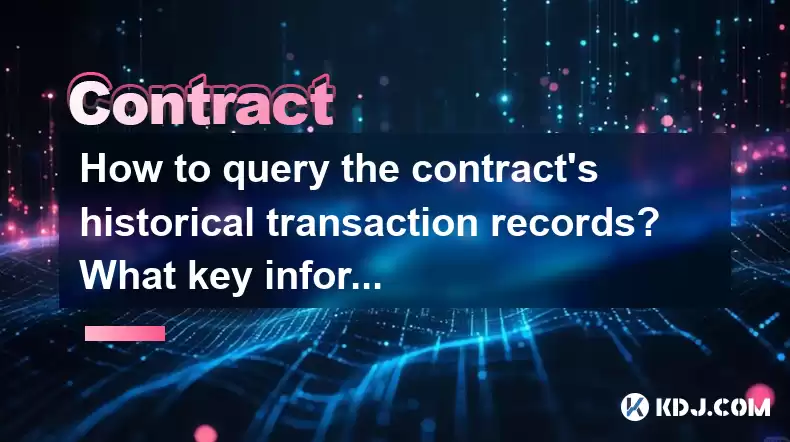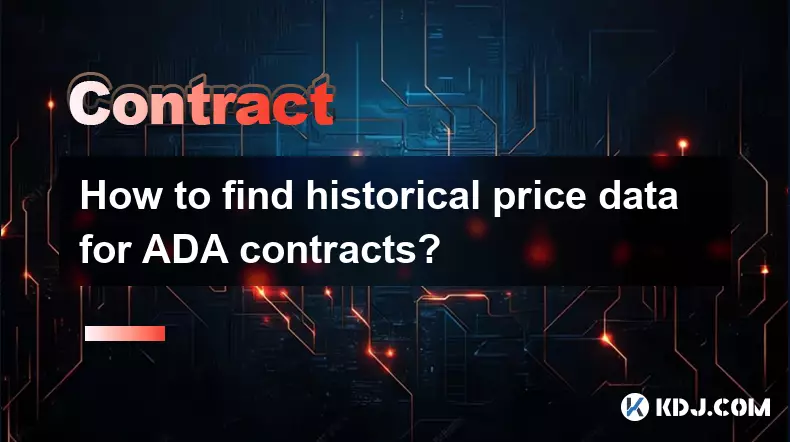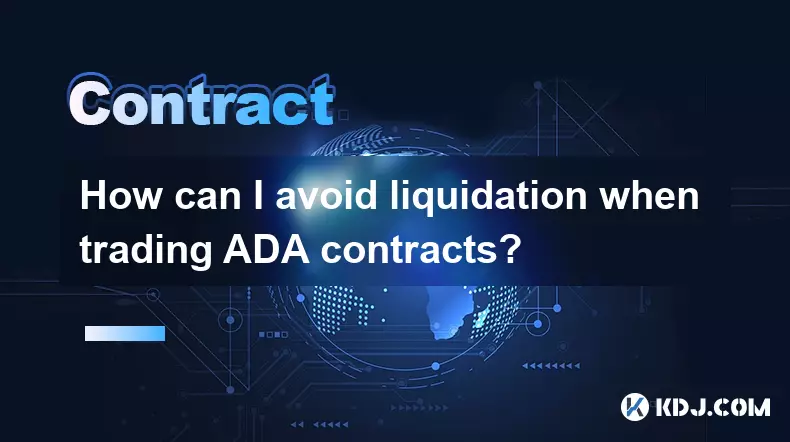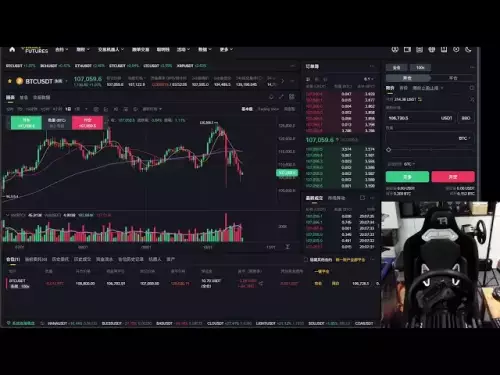-
 bitcoin
bitcoin $106975.071866 USD
-0.29% -
 ethereum
ethereum $3871.670850 USD
-0.07% -
 tether
tether $1.000261 USD
-0.01% -
 bnb
bnb $1084.417621 USD
-0.50% -
 xrp
xrp $2.348167 USD
0.82% -
 solana
solana $185.621736 USD
0.45% -
 usd-coin
usd-coin $0.999833 USD
-0.04% -
 tron
tron $0.313423 USD
0.81% -
 dogecoin
dogecoin $0.188856 USD
0.54% -
 cardano
cardano $0.630416 USD
-0.49% -
 hyperliquid
hyperliquid $36.506353 USD
2.24% -
 ethena-usde
ethena-usde $0.999584 USD
-0.01% -
 chainlink
chainlink $16.750026 USD
-0.77% -
 stellar
stellar $0.313373 USD
0.37% -
 bitcoin-cash
bitcoin-cash $465.978560 USD
-1.57%
How to query the contract's historical transaction records? What key information is included when exporting data?
To query smart contract transactions, use blockchain explorers like Etherscan or APIs like Ethers.js, and export key data such as transaction hash, block number, and gas used for analysis.
Apr 27, 2025 at 06:21 pm

When dealing with cryptocurrency and blockchain technology, understanding how to query a smart contract's historical transaction records and what key information to look for when exporting data is crucial. This article will guide you through the process and highlight the important data points you should pay attention to.
Understanding Smart Contract Transaction Records
Smart contracts are self-executing contracts with the terms of the agreement directly written into code. They run on blockchain platforms like Ethereum, and every interaction with a smart contract results in a transaction that is recorded on the blockchain. These transactions can include actions like sending tokens, executing functions, or updating data within the contract.
Querying Historical Transaction Records
To query a smart contract's historical transaction records, you will typically use a blockchain explorer or an API provided by blockchain platforms. Here's how you can do it:
- Using a Blockchain Explorer:
- Navigate to a reputable blockchain explorer such as Etherscan for Ethereum-based contracts.
- Enter the smart contract address in the search bar.
- Click on the 'Transactions' tab to view all transactions associated with the contract.
- You can filter transactions by type, such as internal transactions, token transfers, or contract executions.
- Using an API:
- Choose an API provider like Ethers.js or Web3.js for Ethereum.
- Set up your development environment and connect to the Ethereum network.
- Use the API to call methods that fetch transaction data. For example, you might use the
getTransactionorgetTransactionsByAddressmethods. - Process the returned data to filter and analyze the transactions you are interested in.
Exporting Transaction Data
When exporting transaction data, it's important to know what key information to include. This data can be crucial for auditing, analysis, or reporting purposes. Here are the key pieces of information you should consider:
- Transaction Hash: A unique identifier for each transaction.
- Block Number: The block in which the transaction was included.
- Timestamp: The exact time when the transaction was processed.
- From Address: The address that initiated the transaction.
- To Address: The address that received the transaction or the contract address if it's a contract interaction.
- Value: The amount of cryptocurrency transferred, if applicable.
- Gas Used: The amount of gas consumed by the transaction.
- Gas Price: The price per unit of gas paid by the sender.
- Input Data: The data sent to the contract, which can include function calls and parameters.
- Status: Whether the transaction was successful or reverted.
- Logs: Events emitted by the contract during the transaction.
Tools for Exporting Data
Several tools can help you export transaction data from a smart contract:
- Etherscan's Export Feature:
- Go to the 'Transactions' tab of your smart contract on Etherscan.
- Click on the 'Export' button at the top right corner.
- Choose the format you want to export the data in, such as CSV or JSON.
- Download the file and analyze it using your preferred tool.
- Custom Scripts:
- Write a script using a blockchain API like Web3.js or Ethers.js.
- Use the API to fetch transaction data and write it to a file in your preferred format.
- This method allows for more customization and can be automated for regular data exports.
Analyzing Exported Data
Once you have exported the transaction data, you can analyze it to gain insights into the smart contract's behavior and usage. Here are some steps to consider:
- Data Cleaning: Remove any irrelevant or duplicate transactions.
- Categorization: Group transactions by type, such as token transfers, contract calls, or internal transactions.
- Time Series Analysis: Look at transaction patterns over time to identify trends or anomalies.
- Address Analysis: Investigate the addresses interacting with the contract to understand user behavior.
Ensuring Data Accuracy
When working with smart contract transaction data, it's crucial to ensure the accuracy of the information you are collecting and analyzing. Here are some tips:
- Cross-Verify Data: Use multiple sources to confirm the accuracy of transaction details.
- Understand the Context: Be aware of the specific blockchain and smart contract you are dealing with, as different platforms may have different data structures.
- Regular Updates: Keep your tools and scripts updated to ensure they are compatible with the latest blockchain protocols.
Frequently Asked Questions
Q: Can I query historical transaction records from any blockchain platform?A: Yes, most blockchain platforms offer APIs or explorers that allow you to query historical transaction records. However, the specific methods and tools may vary depending on the platform.
Q: How can I ensure the privacy of transaction data when exporting it?A: To ensure privacy, you can anonymize the data by removing or encrypting sensitive information such as user addresses. Additionally, ensure that the data is stored securely and only shared with authorized parties.
Q: What are the common challenges faced when analyzing smart contract transaction data?A: Common challenges include dealing with large volumes of data, understanding complex contract interactions, and ensuring the accuracy of the data. Additionally, different blockchain platforms may have different data formats and structures, which can complicate analysis.
Q: Are there any tools specifically designed for real-time analysis of smart contract transactions?A: Yes, there are tools like The Graph and Moralis that provide real-time indexing and querying capabilities for smart contract data. These tools can help you monitor and analyze transactions as they happen.
Disclaimer:info@kdj.com
The information provided is not trading advice. kdj.com does not assume any responsibility for any investments made based on the information provided in this article. Cryptocurrencies are highly volatile and it is highly recommended that you invest with caution after thorough research!
If you believe that the content used on this website infringes your copyright, please contact us immediately (info@kdj.com) and we will delete it promptly.
- SwiReasoning: A New Frontier for Reasoning Modes in Large Language Models
- 2025-10-19 16:30:12
- Bitcoin Treasury Companies: Bubble or Breakthrough?
- 2025-10-19 16:30:12
- Floki Price Check: Oversold? Bollinger Bands Tell the Tale!
- 2025-10-19 16:45:11
- WIF Tests, Meme Coin Mania, and Crypto Headwinds: A Deep Dive
- 2025-10-19 16:35:12
- Navigating Crypto Turbulence: INJ, Bollinger Bands, and Market Consolidation
- 2025-10-19 16:35:12
- PEPE's Consolidation: Meme Coin Sector Awaits the Next Big Wave
- 2025-10-19 16:40:15
Related knowledge

What are quarterly vs. perpetual ADA contracts?
Oct 19,2025 at 08:55am
Understanding Quarterly and Perpetual ADA ContractsDerivatives trading in the cryptocurrency space has expanded rapidly, offering traders various inst...

How to find historical price data for ADA contracts?
Oct 18,2025 at 10:18pm
Understanding ADA and Its Market Data Availability1. Cardano’s native cryptocurrency, ADA, operates on a decentralized blockchain that supports smart ...

How to hedge my spot Cardano portfolio with ADA contracts?
Oct 18,2025 at 05:36am
Hedging Your ADA Spot Holdings Using Derivatives1. Identify a reliable exchange that offers ADA futures or perpetual contracts. Exchanges like Binance...

How are the trading fees for ADA contracts calculated on Binance?
Oct 19,2025 at 03:18pm
Understanding ADA Futures Fee Structure on Binance1. Trading fees for ADA perpetual contracts on Binance are determined using a tiered system based on...

How can I avoid liquidation when trading ADA contracts?
Oct 18,2025 at 01:37am
Understanding Liquidation in ADA Futures Trading1. Liquidation occurs when a trader’s margin balance falls below the maintenance threshold required to...

How do you calculate profit and loss (PnL) for ADA contracts?
Oct 19,2025 at 12:18pm
Understanding ADA Contract Mechanics1. ADA contracts operate within the Cardano blockchain ecosystem, where smart contracts govern transaction logic a...

What are quarterly vs. perpetual ADA contracts?
Oct 19,2025 at 08:55am
Understanding Quarterly and Perpetual ADA ContractsDerivatives trading in the cryptocurrency space has expanded rapidly, offering traders various inst...

How to find historical price data for ADA contracts?
Oct 18,2025 at 10:18pm
Understanding ADA and Its Market Data Availability1. Cardano’s native cryptocurrency, ADA, operates on a decentralized blockchain that supports smart ...

How to hedge my spot Cardano portfolio with ADA contracts?
Oct 18,2025 at 05:36am
Hedging Your ADA Spot Holdings Using Derivatives1. Identify a reliable exchange that offers ADA futures or perpetual contracts. Exchanges like Binance...

How are the trading fees for ADA contracts calculated on Binance?
Oct 19,2025 at 03:18pm
Understanding ADA Futures Fee Structure on Binance1. Trading fees for ADA perpetual contracts on Binance are determined using a tiered system based on...

How can I avoid liquidation when trading ADA contracts?
Oct 18,2025 at 01:37am
Understanding Liquidation in ADA Futures Trading1. Liquidation occurs when a trader’s margin balance falls below the maintenance threshold required to...

How do you calculate profit and loss (PnL) for ADA contracts?
Oct 19,2025 at 12:18pm
Understanding ADA Contract Mechanics1. ADA contracts operate within the Cardano blockchain ecosystem, where smart contracts govern transaction logic a...
See all articles





















![[4K 60fps] Astral by oc3andark (1 Coin) [4K 60fps] Astral by oc3andark (1 Coin)](/uploads/2025/10/19/cryptocurrencies-news/videos/k-fps-astral-ocandark-coin/68f438453fa33_image_500_375.webp)




















































